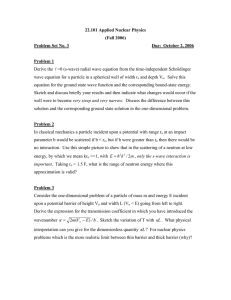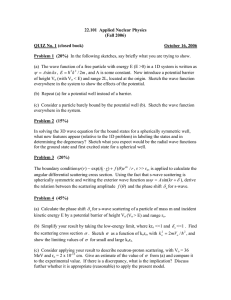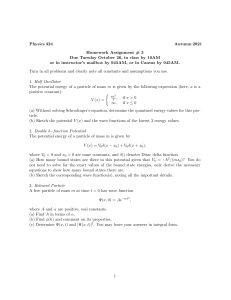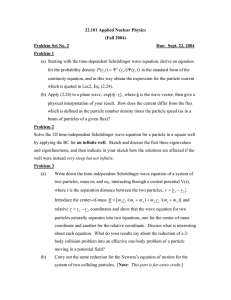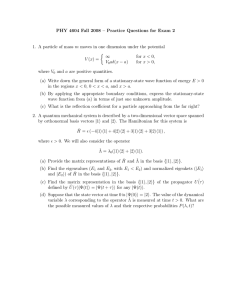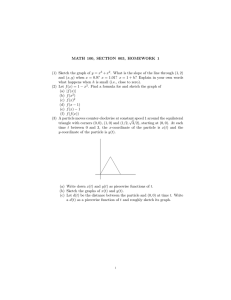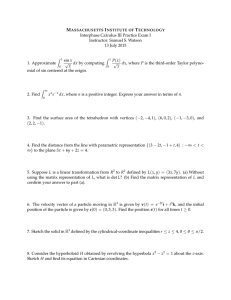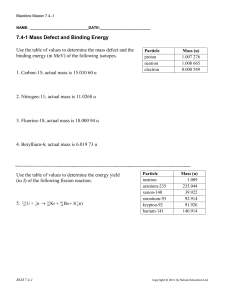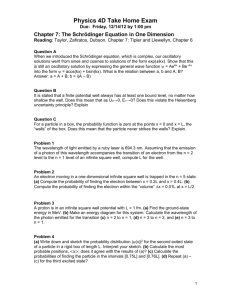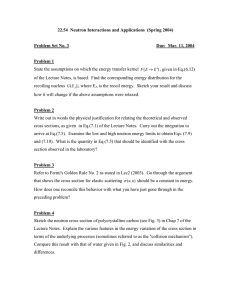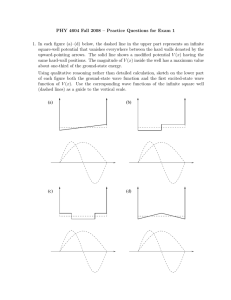22.101 Applied Nuclear Physics (Fall 2004) Problem Set No. 3
advertisement
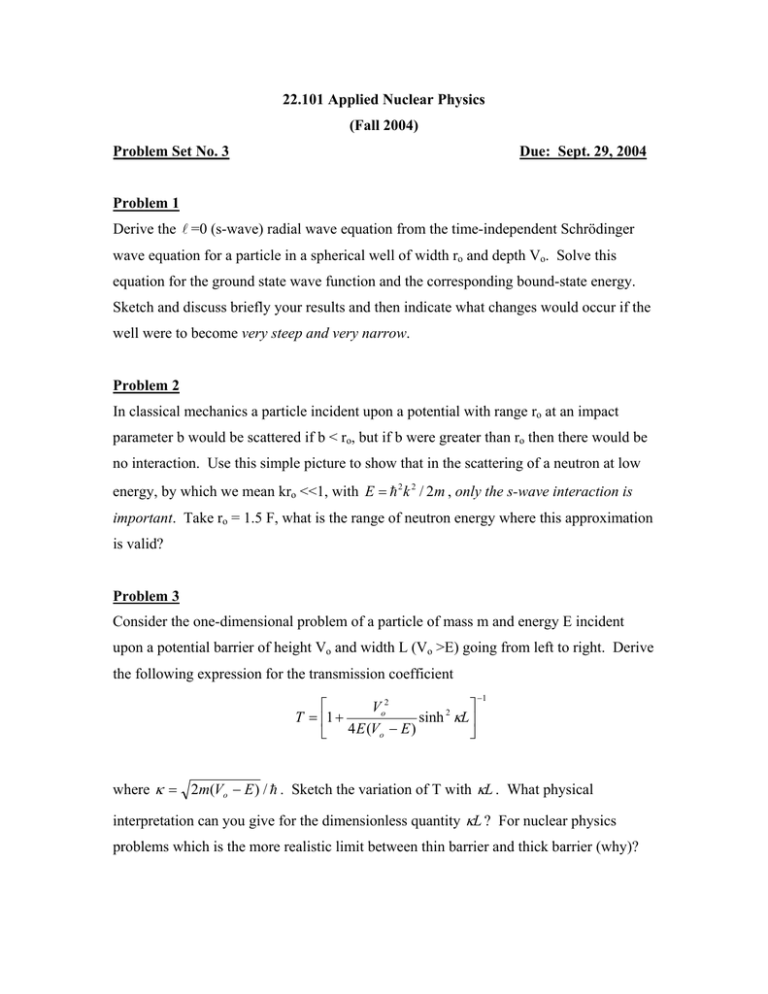
22.101 Applied Nuclear Physics (Fall 2004) Due: Sept. 29, 2004 Problem Set No. 3 Problem 1 Derive the l =0 (s-wave) radial wave equation from the time-independent Schrödinger wave equation for a particle in a spherical well of width ro and depth Vo. Solve this equation for the ground state wave function and the corresponding bound-state energy. Sketch and discuss briefly your results and then indicate what changes would occur if the well were to become very steep and very narrow. Problem 2 In classical mechanics a particle incident upon a potential with range ro at an impact parameter b would be scattered if b < ro, but if b were greater than ro then there would be no interaction. Use this simple picture to show that in the scattering of a neutron at low energy, by which we mean kro <<1, with E = h 2 k 2 / 2m , only the s-wave interaction is important. Take ro = 1.5 F, what is the range of neutron energy where this approximation is valid? Problem 3 Consider the one-dimensional problem of a particle of mass m and energy E incident upon a potential barrier of height Vo and width L (Vo >E) going from left to right. Derive the following expression for the transmission coefficient ⎡ ⎤ Vo2 T = ⎢1 + sinh 2 κL ⎥ ⎣ 4 E (Vo − E) ⎦ −1 where κ = 2m(Vo − E) / h . Sketch the variation of T with κL . What physical interpretation can you give for the dimensionless quantity κL ? For nuclear physics problems which is the more realistic limit between thin barrier and thick barrier (why)?
